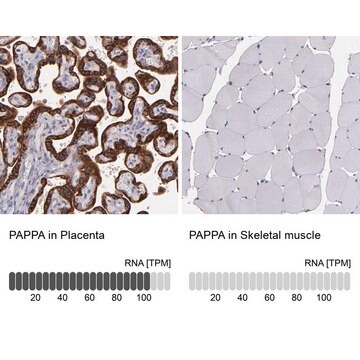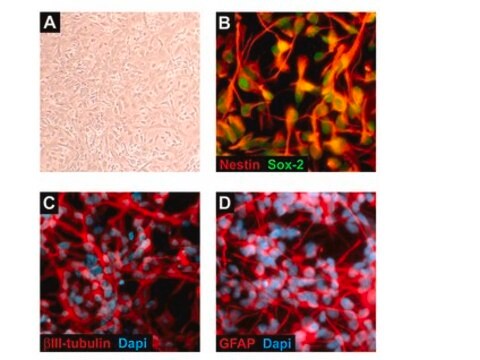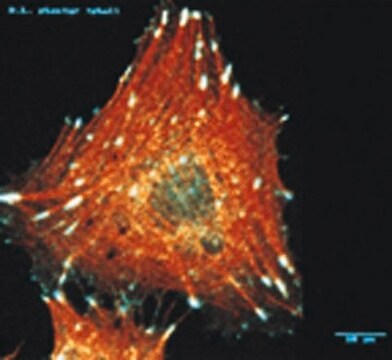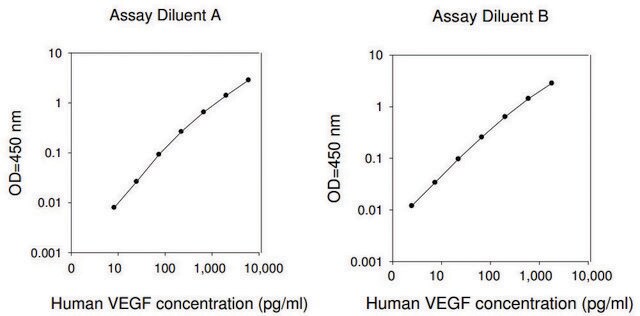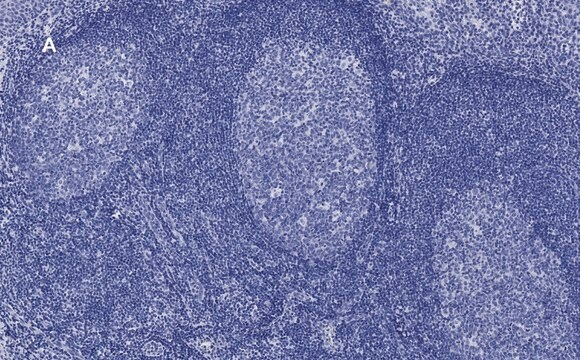SCC132M
Linia komórkowa chłoniaka z komórek płaszcza CCMCL1
Human
About This Item
Polecane produkty
Nazwa produktu
Linia komórkowa chłoniaka z komórek płaszcza CCMCL1, CCMCL1 human mantle cell lymphoma cell line is well characterized at the molecular level and can support research and drug development efforts targeting MCL.
pochodzenie biologiczne
human
Poziom jakości
metody
cell culture | mammalian: suitable
Opis ogólny
CCMCL1 ma genetyczną cechę charakterystyczną IGH-CCND1 dla MCL i ściśle przypomina komórki białaczkowe MCL w fazie końcowej, o czym świadczy immunofenotypowanie, kariotypowanie, sekwencja IGHV i sekwencjonowanie całego egzomu (WES) (1). WES dostarcza bezstronnych, bezpośrednich dowodów na zachowanie genomu MCL w CCMCL1 w rozdzielczości pojedynczego nukleotydu. WES nie wykrył mutacji w genach receptora komórek B lub szlaku kinazy 3 fosfatydyloinozytolu, w tym BTK i AKT. Jednak CCMCL1 konstytutywnie wyrażał fosforylowaną AKT i BTK, co sugeruje, że CCMCL1 jest odpowiednim modelem do badań ukierunkowanych na te dwa szlaki w MCL. Inne linie komórkowe MCL mają mutacje lub delecje w ATM lub TP53; pod tym względem CCMCL1 oferuje również możliwość badania MCL bez ingerencji w utratę ATM lub TP53.
Odniesienie:
1. Zhao X, Chen-Kiang S, Shetty S, Di Liberto M, Bodo J, Durkin L, Eng K, Elemento O, Smith MR, Hsi ED (2015) CCMCL1: nowy model agresywnego chłoniaka z komórek płaszcza. Blood 125(17): 2730-2732.
Opis linii komórkowej
Zastosowanie
Cancer
Oncology
Jakość
• Cells are tested negative for Epstein-Barr virus, HPV-16, HPV-18, Hepatitis A, C, Herpesvirus type 6, 7, 8 and HIV-1 & 2 viruses by PCR
• Cells are negative for mycoplasma contamination.
• Each lot of cells is genotyped by STR analysis to verify the unique identity of the cell line
Oświadczenie o zrzeczeniu się odpowiedzialności
Kod klasy składowania
10 - Combustible liquids
Klasa zagrożenia wodnego (WGK)
WGK 1
Temperatura zapłonu (°F)
Not applicable
Temperatura zapłonu (°C)
Not applicable
Certyfikaty analizy (CoA)
Poszukaj Certyfikaty analizy (CoA), wpisując numer partii/serii produktów. Numery serii i partii można znaleźć na etykiecie produktu po słowach „seria” lub „partia”.
Masz już ten produkt?
Dokumenty związane z niedawno zakupionymi produktami zostały zamieszczone w Bibliotece dokumentów.
Nasz zespół naukowców ma doświadczenie we wszystkich obszarach badań, w tym w naukach przyrodniczych, materiałoznawstwie, syntezie chemicznej, chromatografii, analityce i wielu innych dziedzinach.
Skontaktuj się z zespołem ds. pomocy technicznej